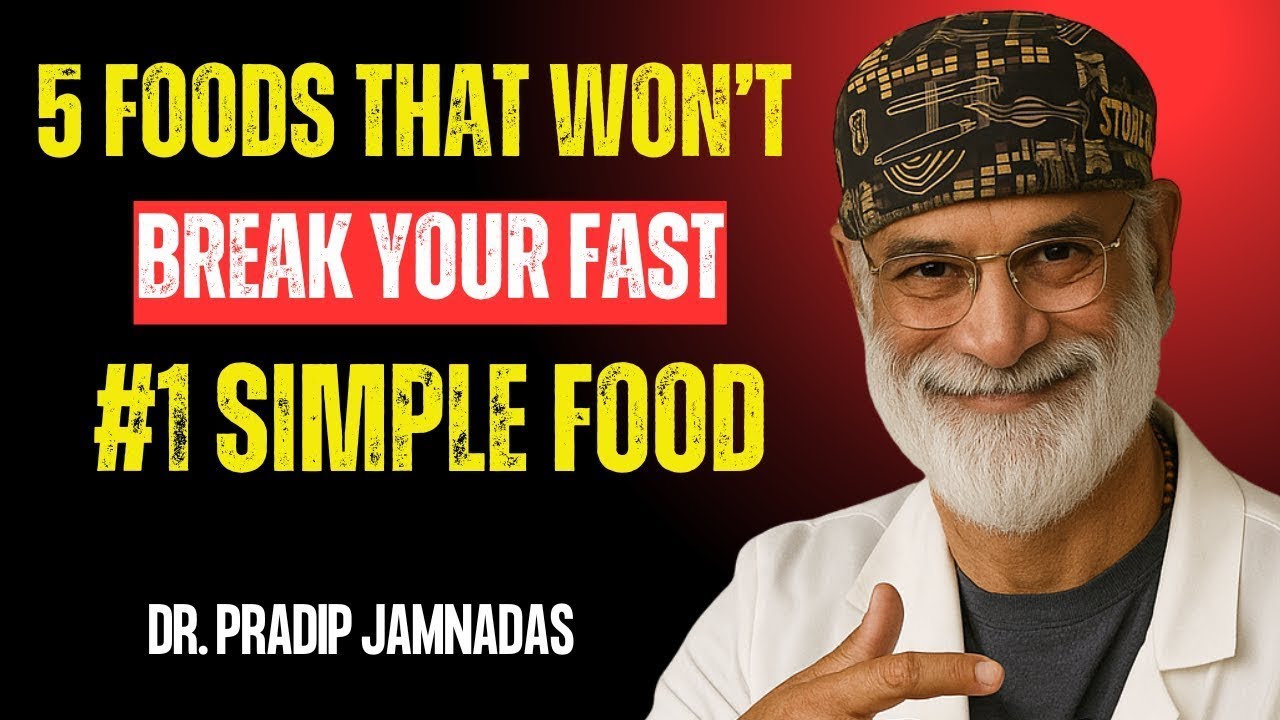- Overview of intermittent fasting and its mechanisms
- Explanation of the role of food intake during fasting
- Detailed analysis of five foods that will not break your fast
- Impact of these foods on metabolism and insulin sensitivity
- Practical tips for integrating these foods into fasting routines
Intermittent fasting has gained significant traction as a dietary approach, praised for its numerous health benefits, including weight loss, improved metabolic function, and enhanced insulin sensitivity. Understanding how fasting works requires grasping the basic mechanisms that the body utilizes during periods of food abstinence. When fasting, the body undergoes metabolic shifts, relying on stored energy sources rather than newly ingested calories. This process triggers a series of hormonal changes that promote fat oxidation and improve blood sugar control.
Key to successful fasting is knowledge of what can and cannot be ingested during these periods. Many wonder about foods or drinks that can be introduced without disrupting the fasting state. Awareness of this can help optimize the benefits associated with fasting while still enjoying a broader range of food choices during eating windows. Below, we explore five specific foods that will not break your fast, along with insights into their nutritional value and metabolic effects.
The first food that can be consumed without breaking a fast is black coffee. Its zero-calorie count makes it a favorite for many fasting practitioners. Coffee not only helps suppress hunger but also stimulates the central nervous system, aiding in fat burning. Key components, such as caffeine, enhance metabolic rate and promote lipolysis, the process of breaking down stored fat for energy. Additionally, black coffee is rich in antioxidants, which can improve overall health and combat oxidative stress. Those who consume coffee should be mindful of their tolerance to caffeine, as excessive intake may lead to jitters or digestive issues.
Tea, particularly green tea, stands out as another viable option during fasting. Like black coffee, it contains minimal calories and offers a range of health benefits. Green tea is packed with catechins, a class of antioxidants that have been shown to bolster fat oxidation and enhance metabolic rate. Studies have demonstrated that the combination of caffeine and catechins can significantly impact weight loss and fat burning. Furthermore, enjoying tea can be a soothing ritual to help maintain focus and calm during fasting periods.
Apple cider vinegar (ACV) has also emerged as a popular choice for those practicing intermittent fasting. When diluted in water, ACV introduces very few calories and may even aid in appetite control. The acetic acid in apple cider vinegar has been shown to improve insulin sensitivity, which is crucial for maintaining stable blood sugar levels. This effect is beneficial for those concerned about energy levels during fasting. Furthermore, ACV has potential digestive benefits and may enhance gut health, making it a favorable addition to a fasting regimen.
Bone broth is a nourishing option frequently overlooked in discussions about fasting. Although it contains a small number of calories, the nutritional profile offers valuable amino acids, minerals, and electrolytes, which can stave off fatigue and bolster hydration. Many people find that consuming bone broth during fasting can help keep them satiated without significantly affecting their fast. Additionally, the collagen found in bone broth supports gut health, tying into the broader theme of maintaining wellness during fasting periods.
Lastly, non-starchy vegetables, such as celery, cucumbers, and leafy greens, can be consumable choices that preserve the fasting state. Although they contain few calories, their fibrous content provides a sense of fullness. Moreover, consuming low-calorie vegetables can ensure adequate hydration and nutrient intake without disrupting metabolic processes. The micronutrients found in these vegetables support overall health, further emphasizing their utility during fasting.
Incorporating these five foods—black coffee, green tea, apple cider vinegar, bone broth, and non-starchy vegetables—can enhance the fasting experience while maximizing the metabolic benefits associated with fasting. By maintaining a focus on foods that possess negligible caloric content or beneficial effects on metabolic health, individuals can pursue their fasting goals with greater efficacy.
It’s crucial to consider the potential long-term impact of fasting and food choices on overall health and well-being. A thorough understanding of how different foods interact with the body during fasting helps people make informed decisions. As insulin sensitivity improves and metabolic functions become more efficient, the benefits of fasting extend beyond weight management to encompass overall health markers, such as blood pressure, cholesterol levels, and blood sugar regulation.
For anyone looking to optimize their fasting approach, being aware of food choices that will not break a fast is critical. This knowledge fosters confidence in decisions around what to consume, allowing individuals to maintain focus on their health objectives. Beyond the biological implications, a successful fasting journey also hinges on personal satisfaction and mental well-being. Having access to various non-caloric options can help mitigate feelings of deprivation often associated with restrictive eating patterns.
Water remains the cornerstone of any fasting regimen, but including foods that do not break the fast adds a beneficial layer. While remaining conscious about caloric content, hydration, and nutrient intake are pivotal aspects. These five foods provide versatility and support for anyone determined to reap the rewards of fasting.
Effective integration of these food items into a fasting routine supports the flexibility required to adhere to such a dietary regimen without feelings of hunger or cravings. The time in which people practice fasting can yield impressive results when combined with the right foods and habits. Consider strategic timing around meals and utilizing these elements to enhance the fasting experience.
The landscape of dietary habits will continue to evolve, pushing individuals toward more nuanced understandings of health and wellness. As knowledge increases, individuals can make well-founded choices geared towards achieving their health goals. These insights into foods that will not break your fast pave the way for a better grasp of intermittent fasting and its associated advantages.
In essence, the synergy between fasting and carefully selected food options like black coffee, green tea, apple cider vinegar, bone broth, and non-starchy vegetables can foster lasting health improvements. Understanding these dynamics enables individuals to navigate their fasting journeys with confidence and clarity, maximizing the full spectrum of benefits offered by this dietary approach.
*****
Source Description
#DrPradipJamnadas, #IntermittentFasting, #FastingTips,
5 Foods That Won’t Break Your Fast
Description
Struggling to maintain your fast without cheating? Join world-renowned cardiologist Dr. Pradip Jamnadas as he reveals the 5 surprising foods and drinks that you can consume during your fasting window without raising your insulin levels or triggering a metabolic response!
In this must-watch 29-minute speech, Dr. Jamnadas breaks down the science of intermittent fasting, autophagy, and the critical role insulin plays in fat burning. Stop guessing what’s safe and what will ruin your progress. You’ll learn the truth about coffee additives, certain teas, and the specific fats that are not only permitted but can enhance your fasting benefits. This talk is essential for anyone practicing Intermittent Fasting (IF), OMAD, or Extended Fasting who wants to maximize fat loss, autophagy, and overall health.
Tap the timestamps below to jump to key insights!
Timestamps with Emoji
⏰ 0:00 – Introduction: Why knowing what breaks a fast is the key to success.
🔬 2:45 – The science of Autophagy and the real goal of fasting.
📈 6:10 – Insulin Spikes: The one metric that matters (and how food affects it).
☕ 9:50 – Food #1: The truth about Coffee and its safe additives.
🌿 13:20 – Food #2: A surprising beverage that enhances fat burning.
🥑 17:05 – Food #3: The specific type of Fat that won’t trigger insulin.
🧂 20:40 – Food #4: An essential mineral that must be replaced during a fast.
🍵 23:15 – Food #5: The safe and soothing drink for hunger pangs.
🚫 26:00 – Bonus Warning: The #1 ingredient people miss that always breaks a fast.
💡 28:15 – Summary & Final fasting wisdom from Dr. Jamnadas.
Related 30 Hashtags
#DrPradipJamnadas, #IntermittentFasting, #FastingTips, #WeightLoss, #Autophagy, #IFforBeginners, #KetoFasting, #OMAD, #FastingHacks, #HealthandWellness, #MetabolicHealth, #InsulinResistance, #FatLoss, #HealthyEating, #NutritionTips, #Cardiologist, #FastingScience, #DoNotBreakYourFast, #Longevity, #DrJamnadas, #TimeRestrictedEating, #DietTips, #BodyHacks, #WellnessJourney, #OptimalHealth, #CleanFasting, #FastingFoods, #WhatToEatWhenFasting, #ScienceBackedHealth, #CardiovascularHealth
Why Watch This (30 Keywords in Commas)
Fasting foods, intermittent fasting guide, Dr. Jamnadas fasting, what breaks a fast, autophagy activation, weight loss secrets, clean fasting, metabolic switching, safe fasting tips, insulin control, fat burning zone, fasting for longevity, zero calorie foods, black coffee fasting, electrolyte replacement, hunger management, intermittent fasting mistakes, ketosis maintenance, no insulin response, healthy fats, fasting success, Dr. Pradip Jamnadas speech, beginner fasting guide, prolonged fasting help, health transformation, cellular repair, science of fasting, fasting hydration, IF cheats, fasting benefits,

